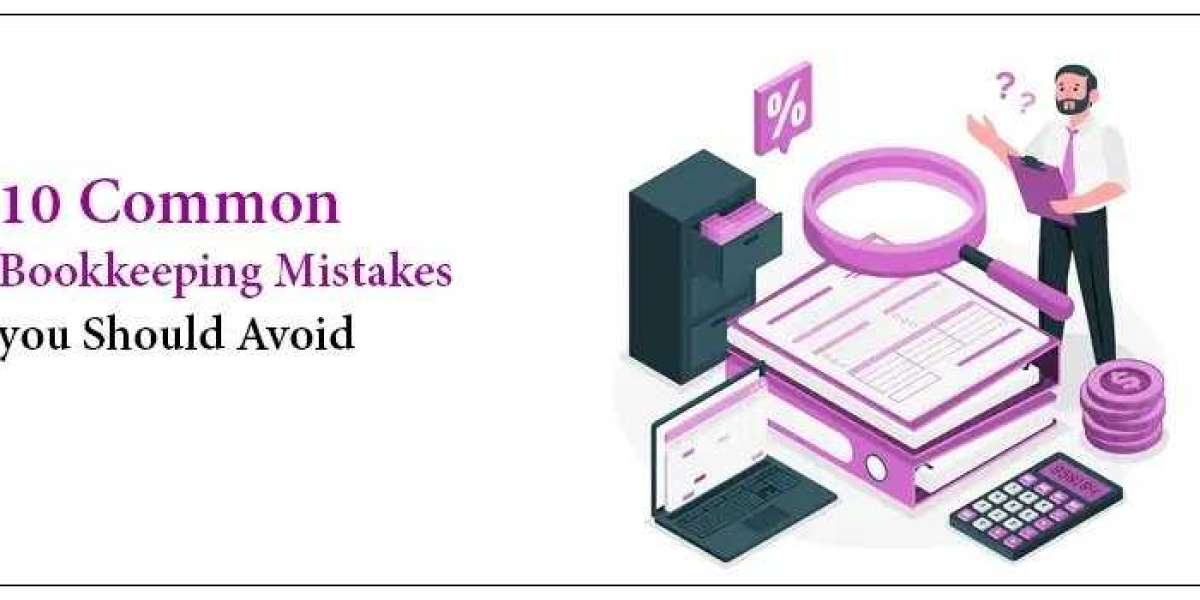Effective bookkeeping is the backbone of any successful business. Accurate financial records not only help you make informed decisions but also ensure compliance with tax regulations. Unfortunately, many businesses, especially small ones, often make bookkeeping mistakes that can lead to financial troubles down the road. In this article, we'll explore10 Common Bookkeeping Mistakes You Should Avoid and provide insights on how to avoid them.
Not Keeping Records Up to Date
One of the most prevalent mistakes is failing to update your financial records regularly. This can lead to confusion, errors, and missed opportunities to identify financial trends or issues. Make it a habit to enter transactions promptly and reconcile your accounts regularly.
Mixing Personal and Business Finances
Using personal accounts for business expenses, or vice versa, is a recipe for chaos. It can complicate your taxes and make it challenging to track business expenses accurately. Open separate bank accounts for your business and strictly use them for business-related transactions.
Neglecting Receipts and Documentation
Losing or disregarding receipts and invoices can result in deductions being disallowed during tax audits. Invest in a good filing system or consider digitizing receipts using apps to ensure you have a record of all transactions.
Incorrect Categorization
Misclassifying quickbooks can lead to inaccurate financial statements and tax returns. Regularly review and refine your chart of accounts to ensure expenses are correctly categorized. Seek professional advice if you're unsure about specific categorizations.
Not Reconciling Bank Statements
Failure to reconcile your bank statements can result in missed discrepancies or errors. Reconcile your accounts each month to ensure that the balances match and to catch any discrepancies early.
Ignoring Petty Cash
Petty cash transactions are often overlooked, leading to inaccuracies in your financial records. Assign someone responsible for managing petty cash, and ensure that all transactions are properly recorded.
Inconsistent Record-Keeping Methods
Using multiple software programs or spreadsheets that aren't synchronized can lead to data inconsistencies. Choose a bookkeeping system that suits your needs and stick with it to maintain accuracy and efficiency.
Failing to Back Up Data
Data loss due to hardware failure or other unforeseen circumstances can be catastrophic. Regularly back up your financial data to a secure location, preferably offsite, to prevent any loss.
Ignoring Tax Deadlines
Missing tax deadlines can result in penalties and interest charges. Keep a calendar of tax deadlines and make sure to file your returns on time. Consider hiring a tax professional to help with complex filings.
Not Seeking Professional Help
Bookkeeping can be complex, especially as your business grows. Many business owners make the mistake of trying to handle everything themselves. It's worth investing in a qualified bookkeeper or accountant who can provide expert guidance and ensure compliance with tax laws.
Conclusion
Effective bookkeeping is essential for the financial health and success of your business. Avoiding these common bookkeeping mistakes can save you time, money, and stress in the long run. Regularly updating your records, separating personal and business finances, and seeking professional assistance when needed are key steps toward maintaining accurate and reliable financial records. By addressing these mistakes head-on, you can steer your business toward financial stability and growth.








